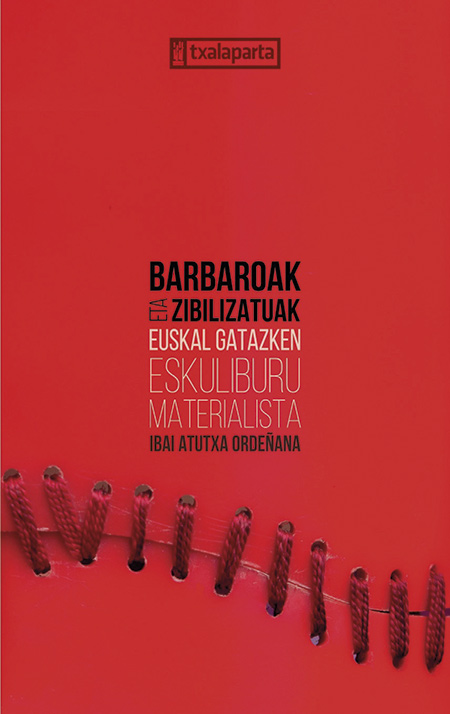

Ibai Atutxa just published with the editorial Txalaparta and the Iratzar Barbaroak Foundation and civilized. Materialist manual of Basque conflicts. I read it enthusiastically, because I think it is very important to create thinking in Basque and to offer theoretical and discursive resources from and to there. Critical, committed and educated look.
The thesis that we will find in this short but intense book is as follows: “An imaginary ‘base’ for designating Euskalduna has been continually renewed, transformed and expanded to dehumanize and subalternize the disobedient Basque throughout modernity”. And this has legitimized violence against him. The Basque Country has been both the field of oppression and resistance, and the author has overcome the civilized/savage dichotomy, and calls an incivilized nation.
We will read that throughout history the Basques have been depicted as "barbarians", "heretics" and "anti-democratic": over time they will be Basques "wild" witches, workers or terrorists and therefore torturable. Meanwhile, civilized Basques will be built on the other side of the scale, but these will be “at the centre of violence and capitalist colonial benefit”.
Terminology has awakened me the desire to play with language, the hook of linguistic reflection. The author uses "Basa" and "barbaro", he has not chosen the savage. The word barbarian comes from bar-bar onomattopia and was a pejorative term to designate people from behind or from the other in the classical world. However, they take us into the forest of the "baseman" and the "savage", an unknown field outside the village, so fruitful in literature and in film. Both introduce global conceptions, symbols that reinforce the work thesis.
However, if this work is to be a manual or toolbox for transformation, it should perhaps have a more informative language to reach more people. Following Let's talk about Tere Maldonado, phrases such as: “The Basque base does not fully respond to the neoliberal cyisheteropatriarchal and colonial biopolitical and necropolitical regimes so far theorized” and makes the specific vocabulary more accessible.